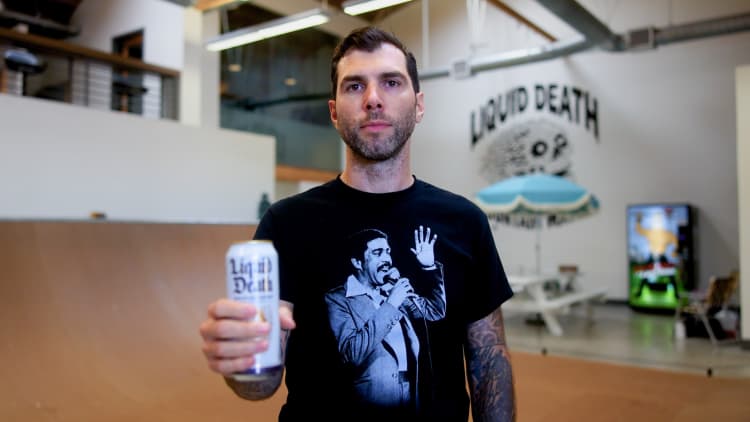Many of the country's top startups for growth and demand are hiring — and a lot of them offer six-figure salaries and remote accommodations, according to LinkedIn.
The job site's latest report on the top startups in the U.S. shows that young businesses disrupting retail, health care and artificial intelligence are some of the buzziest places to work: Ramp, a New York City financial tech company; Liquid Death, the canned beverage company; and Whatnot, a livestream shopping platform make up the top 3 best startups to work for right now, per LinkedIn's analysis.
And it's a good time to be applying to open roles, says Dan Roth, LinkedIn's editor in chief. The early-stage businesses are hiring for roles in engineering, product and design, analytics, sales and marketing, operations, customer service and security — many of which pay $100,000 or more.
Remote roles make up more than half of the available jobs at the top startups, Roth adds.
How to get recruiters to come to you
If you only have time to do one thing to update your LinkedIn profile, consider paying special attention to your skills section.
More than 50% of hirers on LinkedIn now explicitly use skills data to fill their roles, Roth says. "Add context by listing them within a specific job, experience, education, project or credential," he adds.
Recruiters are 50% more likely to search for candidates by skills rather than years of experience, and some 75% of recruiters predict skills-first hiring will become a priority for their company in the next 18 months, according to LinkedIn.
On the technical side, some of the most in-demand skills employers are looking for include IT skills, software development and data analysis. More broadly, listing management, communication and customer service skills could also land you a recruiter message much faster.
"Being able to identify your skill set, and highlight them on your profile, can help you stand out in the hiring process and make you a stronger candidate," Roth says.
The soft skills startups want most
In addition to having the technical chops to help a company grow, Roth says teamwork and collaboration are the top soft skills startups are hiring for.
"They want someone with an entrepreneurial spirit and growth mindset to help them spot and seize solutions and opportunities to make an impact on the business," he says. "Come prepared for an interview with specific examples of how you've navigated new experiences, how you've worked and led teams before, and how you can bring these skills to your next role."
Roth gives a few examples of how companies are framing their talent needs on LinkedIn: Tapcheck, a payroll service, looks for candidates with "Entrepreneurial DNA," saying, "our best employees are the ones always asking "what are we not doing" and "what can we be doing to be better."
Meanwhile at Zip, a procurement platform, the company says "velocity is very important — being able to move quickly, be scrappy and roll up our sleeves."
Overall, LinkedIn recognized the top 50 startups in the country based on employment growth (percentage of headcount increase), engagement (how many non-employees are viewing the startup on LinkedIn), job interest (the rate at which people are viewing and applying to jobs there) and attraction of top talent (how many employees the startup has recruited away from LinkedIn Top Companies).
Want to be smarter and more successful with your money, work & life? Sign up for our new newsletter!
Want to earn more and land your dream job? Join the free CNBC Make It: Your Money virtual event on Oct. 17 at 1 p.m. ET to learn how to level up your interview and negotiating skills, build your ideal career, boost your income and grow your wealth. Register for free today.
Check out: A recruiter debunks the viral 'white font' resume trick: 'It drives me nuts'



